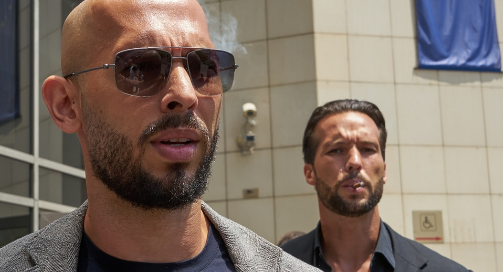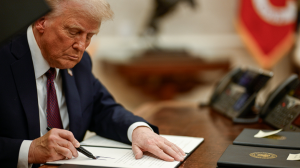It is the effects of the so-called “incel” culture.
Others are reading now
A new report by the UK’s NASUWT teachers’ union has raised alarm over a growing wave of misogyny and sexist behavior in classrooms—fueled, educators say, by online influencers such as Andrew Tate.
The findings, based on a survey of over 5,800 teachers, reveal deep concerns about the impact of social media on student attitudes and behavior. Nearly 60% of respondents believe that online platforms have significantly worsened student conduct, with many citing the spread of harmful gender-based stereotypes and extreme views.
At the union’s annual conference in Liverpool this weekend, teachers shared troubling anecdotes. One reported that 10-year-old boys in her class refused to speak to her “because she’s a woman.” Another educator from an all-boys school said the “Andrew Tate phenomenon had a huge impact on how students interacted with women and even with men they didn’t consider ‘masculine’.”
Some schools have also seen a rise in derogatory language directed at female staff, directly linked to content from Tate’s videos.
Also read
The report arrives amid a broader national reckoning with the influence of online misogyny, particularly following the success of the Netflix drama Adolescence, which brought the toxic “incel” subculture into mainstream discussion.
In response, political leaders are beginning to act. Prime Minister Sir Keir Starmer recently convened a roundtable at Downing Street with the creators of Adolescence, exploring ways to shield young boys from what he described as a growing “vortex of hate and misogyny” online. Even opposition leader Kemi Badenoch shared a personal story, revealing that a cousin took his own life after falling into what she called an “internet trap.” She voiced deep concern over the role of social media in shaping young minds.
The Conservative Party has renewed its call for mobile phone bans in schools, citing the urgent need to curb social media’s influence during school hours.
Patrick Roach, general secretary of NASUWT, emphasized the need for coordinated action: “Teachers cannot be left to deal with these issues alone,” he said. The union is pushing for a motion that would have its executive body work with educators to assess the risks posed to young people by far-right and populist movements.
As classrooms increasingly become battlegrounds for online ideologies, educators and policymakers alike are calling for stronger safeguards to protect the minds—and futures—of young students.








